Yesterday, I caused a minor X storm. On the grand scale of X storms – a phrase which, it must be said, simply doesn’t carry the same sensation as what was once known as a ‘Twitter storm’ - my small account barely created a breeze. However, a few dervishes did do the odd whirl.
I’d spotted a picture of billboard from the Ovarian Cancer Foundation NZ, posted on a different social media platform, which nearly got my eyeballs rolling right out of my head at it featuring a ‘transman’.
So, I took it to X.
However, I was mistaken. The picture is not of a young woman who says she’s a man, but is actually of a young man. Knowing how our health organisations now say that ‘men’ can have female illnesses and conditions, though, it seemed entirely plausible that the Ovarian Cancer Foundation was on board with this nonsense, too.
But, at first sight of the words and picture combination on this billboard, I thought I was looking at a woman who identifies a man. Neither did the small print on the billboard make it entirely clear who exactly had the ovarian cancer. Upon further drilling down into the Ovarian Cancer Foundation’s website, the small print was grammatically different to the billboard’s, and conveyed to the reader it may indeed be Harrison who was affected with ovarian cancer -
Not everyone on X saw this as a promotion featuring a woman who says she’s a man, but many, including myself, who have become attuned to how women’s language is being mangled by health organisations, did see that at first. And partnered by the Ovarian Cancer Foundation’s wording “Ovarian cancer can affect anyone”, it came across as possibly being a carefully ambiguous acknowledgement that ‘men’ can also get ovarian cancer. I thought it deserved to be called out on the infamous X, and posted –
The responses to it indicated I wasn’t alone in how I construed this promotion. Then someone pointed out they thought it was the Ovarian Cancer Foundation’s roundabout way of saying a cancer diagnosis affects the cancer sufferer’s family, too. Admittedly, I could see that, but still wasn’t entirely convinced that the wording and graphics were innocent of deliberate ambiguity. After some thought, I decided to leave my post up as an illustration of how health organisations are giving rise to the misunderstanding of public messages by their increasingly pervasive narrative that ‘men’ can have female illnesses and conditions.
Of course, not everyone can read my thoughts (thank goodness) and the objections kept coming. Being X, some of them were polite, and some were off the wall, as you might expect. If the ‘likes’ were anything to go by, though, many saw the promotion the same way as I originally did. Eventually, I got weary of explaining my position, and deleted and replaced my post with a new one –
I’m not apologising for my original post, though, and remain sceptical that the Ovarian Cancer Foundation has created this ambiguous promotion in all innocence. To me, it’s a classic illustration, in a wider sense, of how messages can be misconstrued when health organisations start messing with our language by referring to ‘men’ in women’s contexts. Note that it’s mainly women’s language they’ve decided it’s unnecessary to be accurate with. Men’s language is not adulterated in the same manner anywhere near as frequently.
In addition to the wide misconstruing of the Ovarian Cancer Foundation’s promotion, others wondered why a man was front-and-centre in a women’s matter –
And whilst it’s said to be true that the young man depicted has tragically lost his mother to ovarian cancer, there is still a question of why isn’t a woman centred in this promotion?
I agree with the above commenter - women’s sovereignty and individuality are under threat here in NZ, when organisations, such as the Midwifery Council and possibly the Ovarian Cancer Foundation, try to relegate women to being nothing more than a barely visible cog in the whanau/family.
The young man pictured at the centre of this promotion may have agreed to feature for reasons which he felt were heartfelt, honest, and without any guile whatsoever. But thanks to health organisations in particular not being honest with their language around women anymore, doubts will continue to arise. Having said that, all organisations need to find their linguistic integrity again around women’s language. Confusion, such as that I’ve outlined above, will only increase unless public messages start using accurate language again which most people understand most of the time in the shortest possible time. That used to be a basic principle.
Notably, the billboard does not refer to women once. It’s assumed that people will associate ‘ovarian’ with women, so therefore know it’s women who get ovarian cancer, and that ‘Sara’ is a woman because traditionally that’s a woman’s name. There’s no mention of ‘mum’ or ‘woman’ or anything else that’s specifically refers to females - i.e. the ones who get ovarian cancer. How does that constitute a clear public message at all?

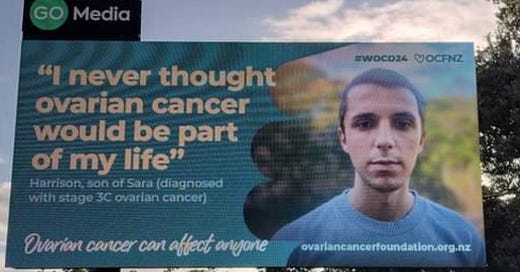




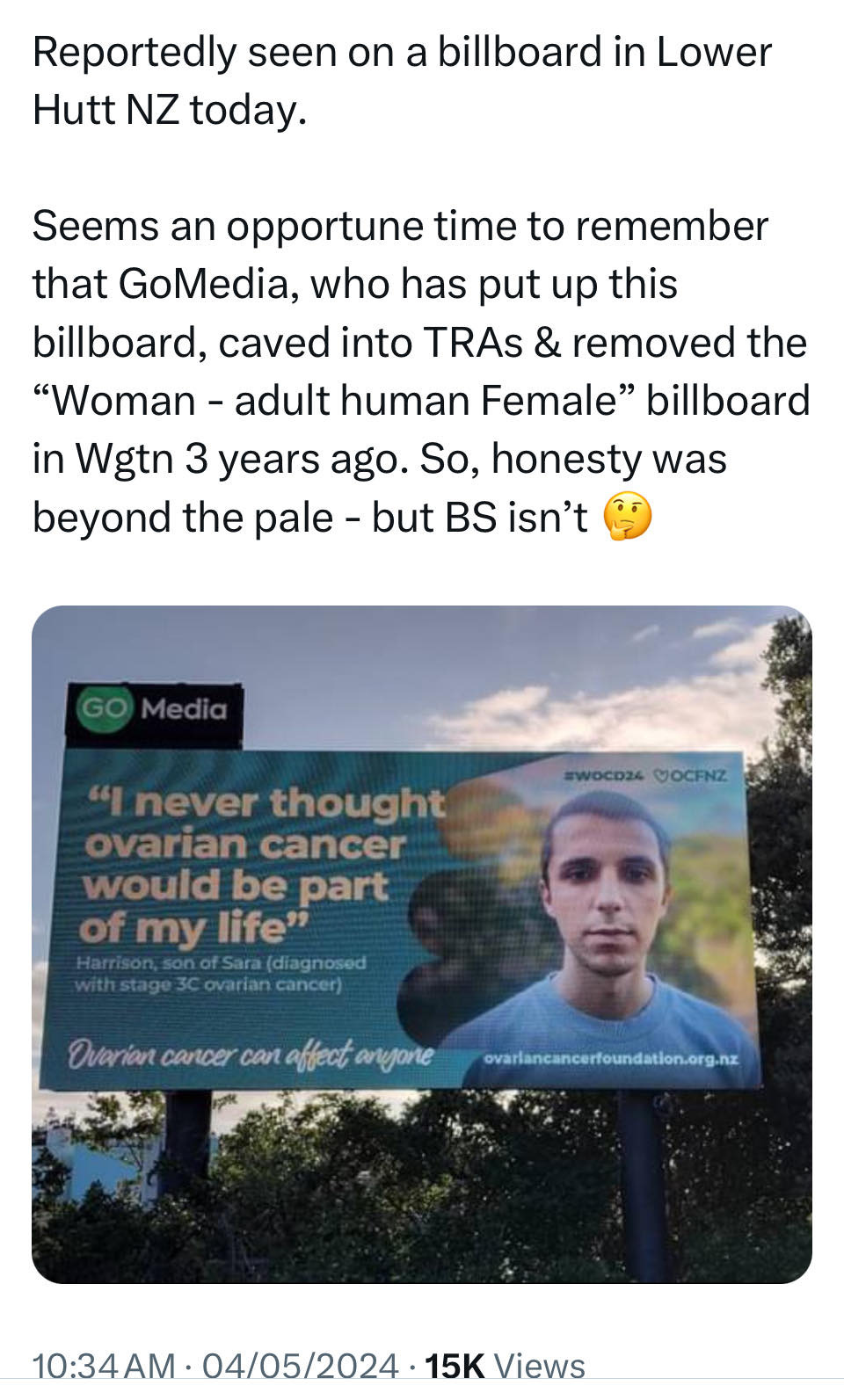
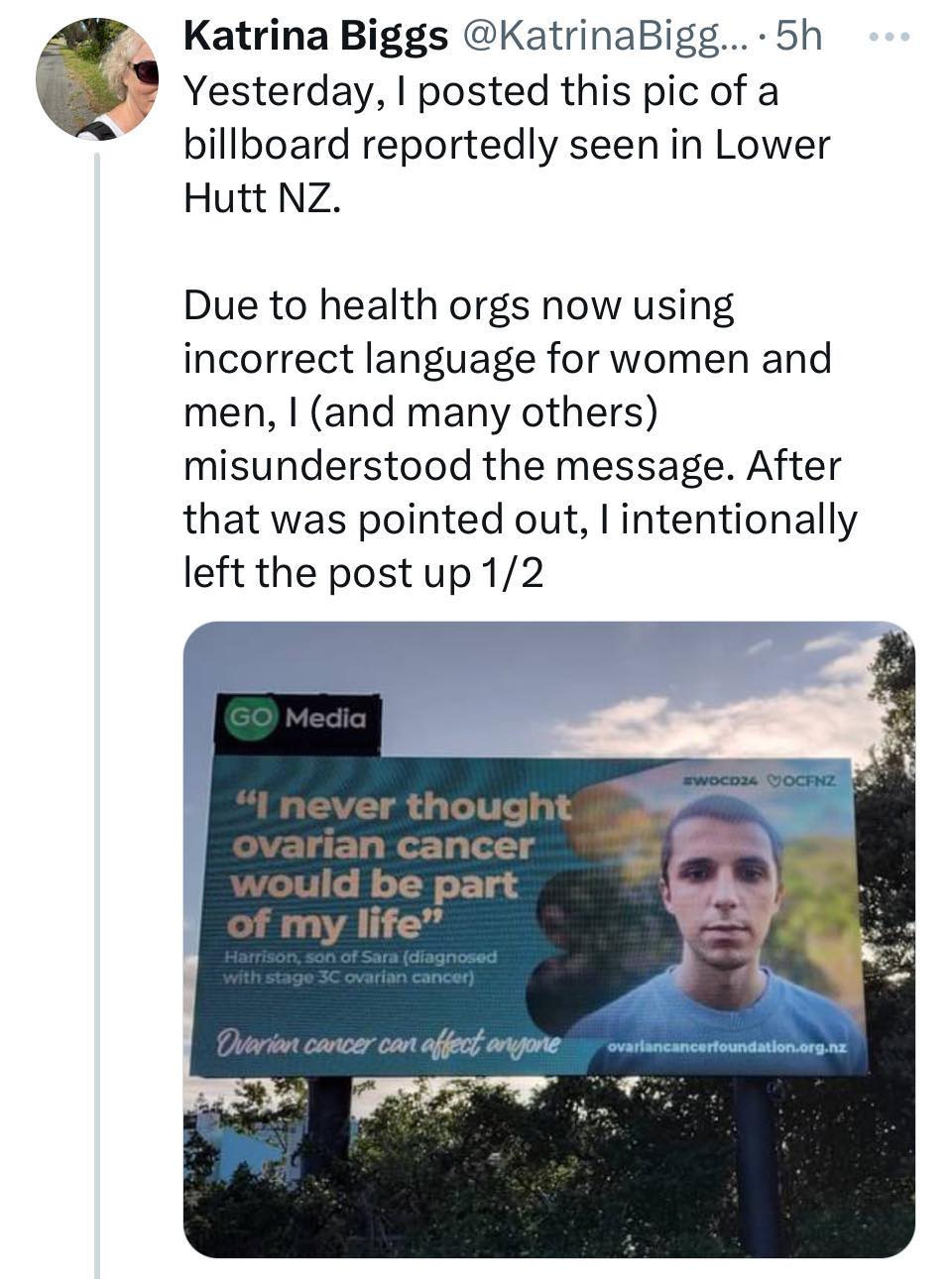
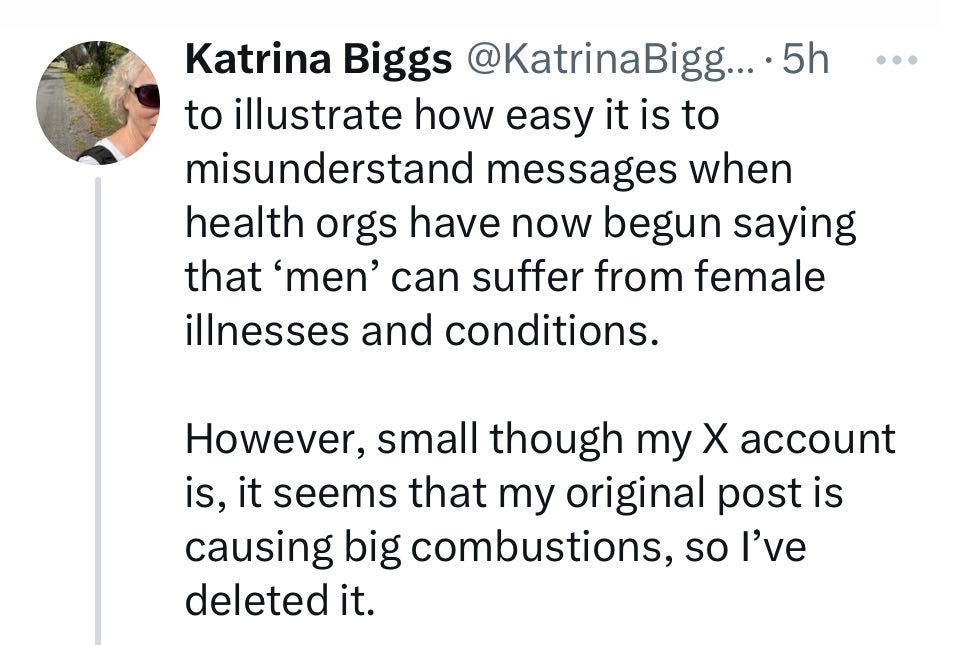

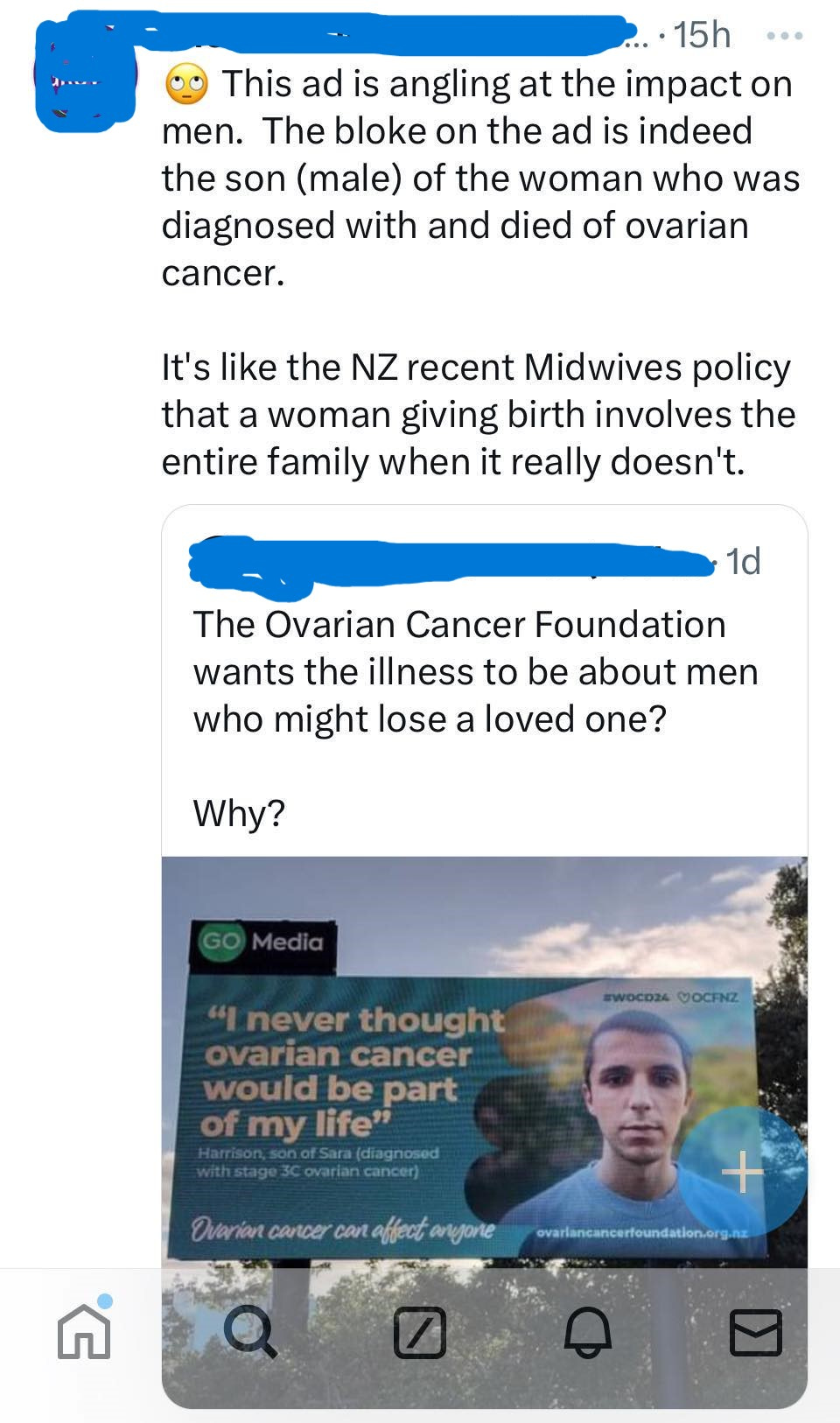
Thanks for giving us the low down on this Katrina - my 2 cents is that this billboard is deliberately ambiguous AND it erases biological women - it's a really insidious nasty billboard and well deserves calling out. It reeks of TRA messaging to erase women as a sex to be replaced with gender ideology. It's disgusting how biological adult human females are being gaslit in this way - subsuming and erasing them by playing the whanau/family card. As you and others have detailed so well - this is a strategy used by the Midwifery Council already to gaslight and erase individual women. They may as well have said 'people who have ovaries' / 'ovary owners' and all the rest of the misogynist BS terms that try to subvert language about biological women's bodies and health. We know what "Ovarian cancer can affect anyone" is about.
Gaslighting: psychological manipulation of a person usually over an extended period of time that causes the victim to question the validity of their own thoughts, perception of reality, or memories and typically leads to confusion, loss of confidence and self-esteem, uncertainty of one's emotional or mental stability, and a dependency (on the perpetrator).
The ambiguity should be questioned. It’s deliberate, devious and devilishly designed to silence women and make them self-silence in the future because a seed of doubt has been sown and there’s a smidge of a chance they may be wrong 😑. It’s typical abuser/groomer behaviour. Don’t feel bad, don’t feel guilty, don’t ever be what your abuser needs or wants you to be.
Not personally directed at you Katrina #justsaying.